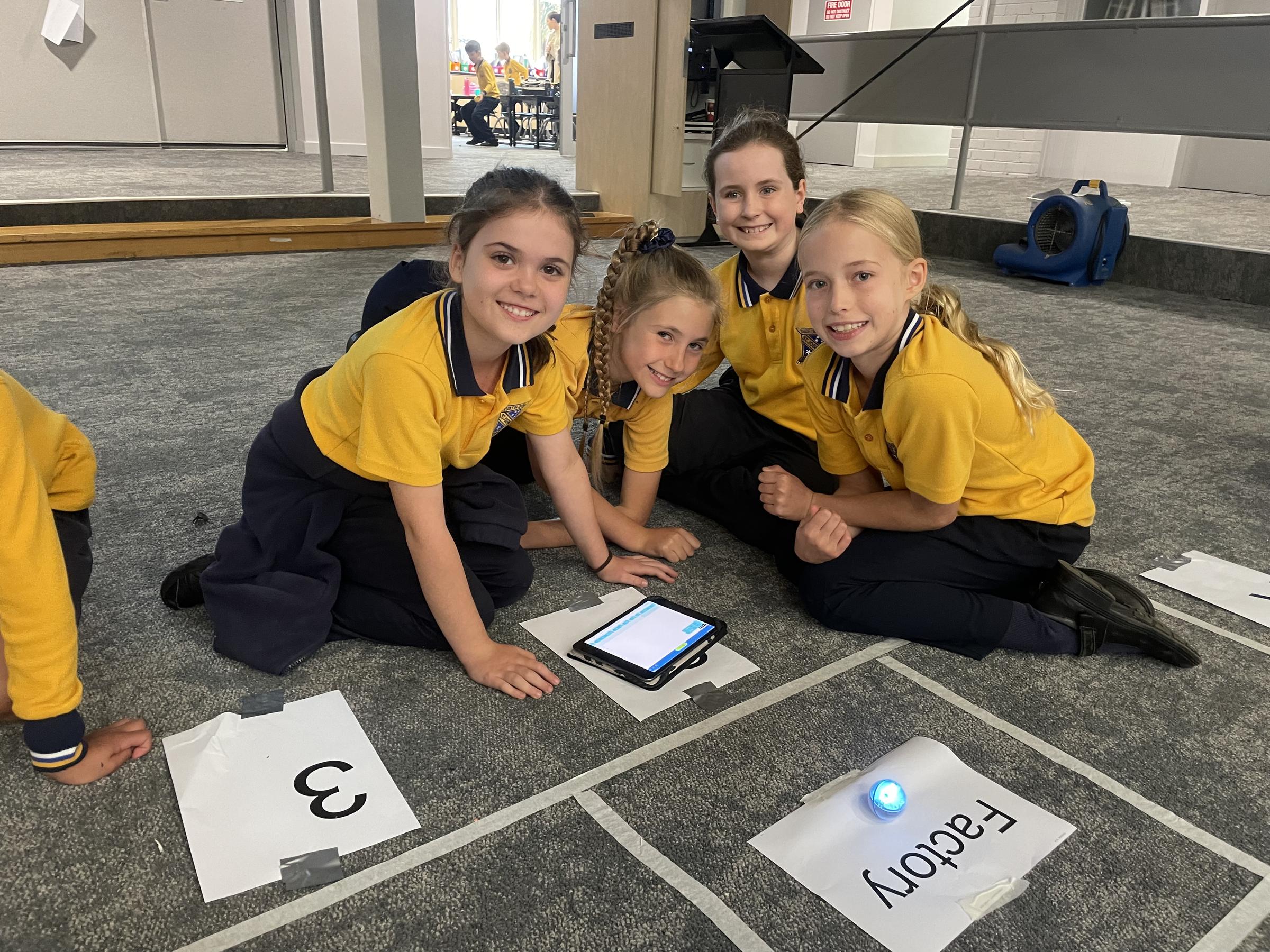Deputy Principal News: Wellbeing and Cyber Safety

Digital social skills
By Catherine Gerhardt
Catherine Gerhardt is a dedicated advocate of critical thinking skills in children and young people. As a parent of school aged children she understands the commitments and challenges parents face ensuring they provide the right information to young people in a way that empowers them to develop their personal and social capabilities. Catherine is a certified training provider through the Office of the Children’s eSafety Commissioner.
Article from Parenting Ideas website
Just as we teach children social skills for real life, there are important social skills for the digital world. As they travel through new social situations, including online, it is imperative that parents teach children to follow a few basic rules.
The internet is a portal into some of the most amazing places, and just like any new place we visit, we are likely to make a few social stumbles. If travelling the world, every culture you visit would have its own social nuances that you are likely to have to work your way around. It would be easy to misunderstand what others say or take offence to something that was not intended.
Young people, at the best of times, are still learning social rules and developing their critical thinking skills around collective interactions. Well-meaning personalities can make all kinds of mistakes when they enter this new online culture.
As parents we want to do whatever it takes to minimise the mistakes our children make online. Netiquette is a set of general guidelines for cyberspace behaviour. Here are some basic principles parents can use to help children solve their own ‘netiquette’ dilemmas.
Be kind
Remember the human behind every screen. Every user is an independent person with individual thoughts and feelings. It can be easy to misunderstand another person’s intentions or even be rude to others when you are not interacting with them in person and given the grace of viewing facial expressions and emotions. Perhaps the best mantra we can go back to as parents is the golden rule of “Treat others how you would like to be treated.” Developing empathy and trying to see that comment, post or photo from many different perspectives takes practice. How would you feel if someone said that to you? Treating others with respect is paramount. Yes, there may be times when you might have to stick up for yourself, however it needs to be done in a responsible and respectful way.
If you wouldn’t do it there, don’t do it here
Social standards apply to both online and offline spaces, and standards of online behaviour should be consistent with real life expectations. As parents we put many rules and expectations in place as to how we expect our children to behave in a public place. I know I expect my children to show respect, use their manners, help others out, practice kind language, etc. Online is the biggest public place your child will ever find themselves, which is all the more reason to work on exceeding those standards of behaviour.
Respect privacy
With the world wide web being a public place, privacy is paramount. Learning how to protect personal information and the importance of looking at a website’s privacy policy can help develop skills around internet privacy. Asking for permission before creating accounts and downloading files, strategies for identifying scams and limiting the type of information kids give about themselves or others can help set a strong foundation for their digital lives.
Develop their internal filter
Parents may feel that they have some control over their child’s use of technology and many use programs and apps that allow for monitoring and filtering content. Despite the best intentions, there are times when filters are re-set, not set up correctly or not even in place – for example when your child goes to their friend’s house, gets online and no safety mechanisms have been established. What this means is that we need to help our children develop their internal filter, as this is the one they will always have and may need to rely on.
Teach them to do the right thing
Parents can nurture moral principles that will guide their children to stand up for their beliefs and act right even without us. Know what you stand for so that your child knows. Parents with clearly identified moral convictions are more likely to raise children that do the right thing. Pursue opportunities to look for moral issues and talk about them as they come up: from TV shows and news events to situations at home, school, and friends. Discuss with your child how you feel about the issue and why.
Be upstanding
There will be times online when your child will have to be brave and stand up for others, when they will have to go against social pressure to do what is right. When someone they know is being deliberately upset or harassed by another person, expect your child to move from bystander to upstander, because this is the right thing to do. In most cases many people contribute to the cyberbullying. Many know about the situation, but choose not to get involved. Encourage your child to stand up, speak up and act up against online abuse. They can support the target by letting them know they are there and provide empathy. Encourage your child to report what is happening to a trusted adult; someone who they believe will listen and has the skills, desire, and authority to help.
THINK
Using the THINK rule can go a long way in practicing digital social skills. It is a checklist of questions that children must go through before they post or comment online. Is it True? Is it Helpful? Is it Inspiring? Is it Necessary? Is it Kind? Created to emphasise care online, it applies to real world engagement as well.
These simple rules apply all along the developmental spectrum. They also give us a clear understanding of what we can do as parents, to help our children manage a positive digital reputation.
If you have any questions or concerns about your child, please don't hesitate to contact your child's classroom teacher or a member of the leadership team.
Tom Hartney
Deputy Principal and eLearning Leader

